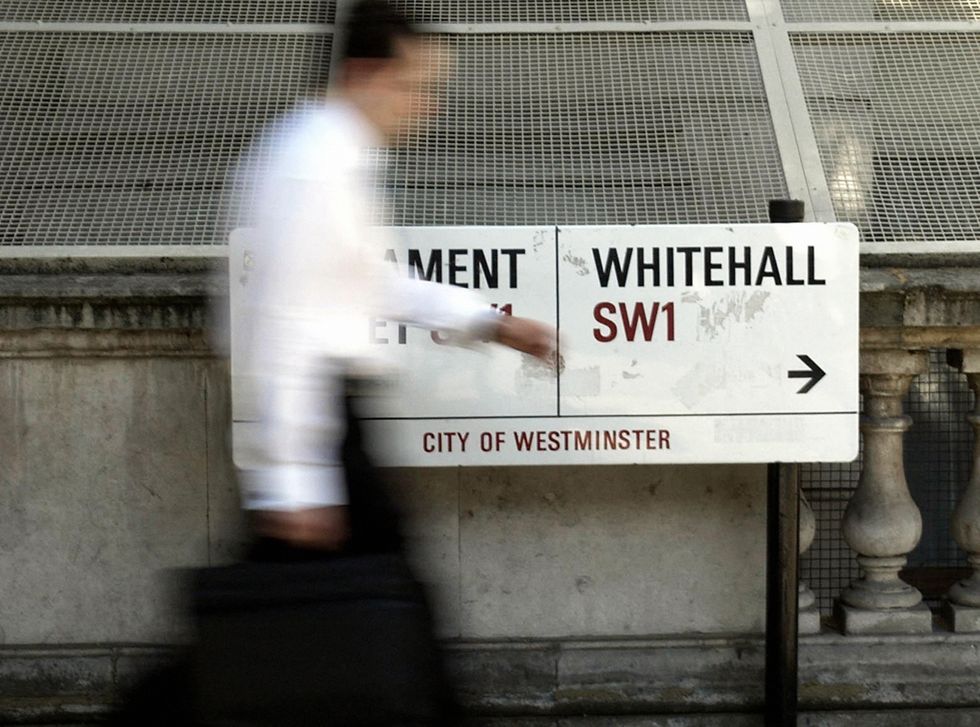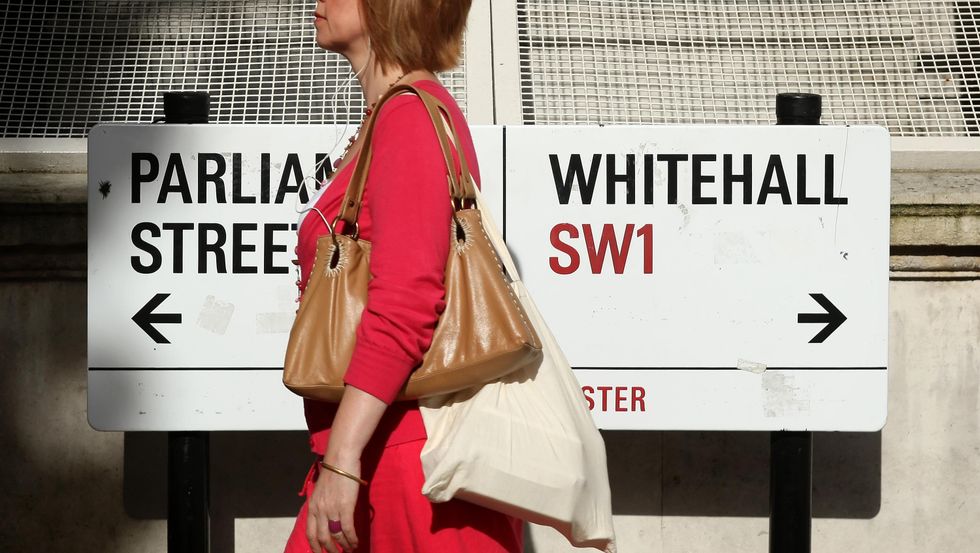George Bunn
Guest Reporter
Civil Service middle management has doubled in size since 2010, with costs ballooning to almost £2billion per year, a damning new report has revealed.
Analysis by the Institute for Government think tank found "uncontrolled grade inflation" has led to civil servants being promoted more rapidly than ever before.
The findings show the growth in middle management positions has been disproportionate compared to the overall expansion of the Civil Service.
The report highlights how officials are being given promotions as a way to circumvent pay restrictions and prevent staff departures to the private sector, The Telegraph has revealed.

The analysis revealed a staggering 112 per cent increase in Grade Six and Grade Seven positions since 2010.
There are now almost 78,000 mandarins in these roles, who receive salaries between £50,000 and £60,000 depending on their department. The senior Civil Service has also seen significant growth, with a 47 per cent increase since 2010. This expansion means one in 67 civil servants now occupies the top ranks, compared to one in 100 in 2010.
Despite the growth in senior positions, median salaries for mandarins have fallen in real terms over 15 years, dropping by 22 per cent for senior roles.
Jack Worlidge, the report's author, told The Times: "Alongside the uncontrolled and unplanned expansion of the Civil Service, there's been equally unplanned and uncontrolled grade inflation."
He noted that "the increase in middle management roles is far more stark in the Civil Service than in the economy."
LATEST DEVELOPMENTS

The report found similar jobs are being advertised at higher ranks to work around pay restrictions and retain staff who might otherwise leave for private sector roles. If the grade structure had remained at 2010 levels, the civil service pay costs would be £1.9billion lower.
The Civil Service has expanded significantly since the Brexit referendum in 2016, growing by 123,000 people.
The report found growth across almost every pay grade except the most junior positions, which have declined due to increasing automation of public sector administration.
A Government spokesman said: "All appointments go through rigorous processes, based on merit and through open and fair competition, as set out in the Civil Service Commission's recruitment principles."

The spokesman continued: "The overall shape and size of the Civil Service will change as we make it more efficient and effective, harnessing new technologies to reduce administrative workloads."
Prime Minister Sir Keir Starmer has appointed Sir Chris Wormald as the new Cabinet Secretary, tasking him with the "complete rewiring of the British state".
In a speech on Monday, Starmer outlined plans to deploy artificial intelligence across the public sector to help deliver his manifesto pledges. The Prime Minister's vision includes overseeing a "mission-led" government that will focus on breaking down silos within the Civil Service.
Earlier today, Starmer insisted that mass deployment of AI could save the taxpayer huge sums amid warnings of the need for "ruthless" spending curbs
Find Out More...
Analysis by the Institute for Government think tank found "uncontrolled grade inflation" has led to civil servants being promoted more rapidly than ever before.
The findings show the growth in middle management positions has been disproportionate compared to the overall expansion of the Civil Service.
The report highlights how officials are being given promotions as a way to circumvent pay restrictions and prevent staff departures to the private sector, The Telegraph has revealed.

The analysis revealed a staggering 112 per cent increase in Grade Six and Grade Seven positions since 2010.
There are now almost 78,000 mandarins in these roles, who receive salaries between £50,000 and £60,000 depending on their department. The senior Civil Service has also seen significant growth, with a 47 per cent increase since 2010. This expansion means one in 67 civil servants now occupies the top ranks, compared to one in 100 in 2010.
Despite the growth in senior positions, median salaries for mandarins have fallen in real terms over 15 years, dropping by 22 per cent for senior roles.
Jack Worlidge, the report's author, told The Times: "Alongside the uncontrolled and unplanned expansion of the Civil Service, there's been equally unplanned and uncontrolled grade inflation."
He noted that "the increase in middle management roles is far more stark in the Civil Service than in the economy."
LATEST DEVELOPMENTS
- Britons emphatically back Farage over Musk on Tommy Robinson row, new poll reveals
- Russian financier loses £6m London home in tax row after claiming ground floor was commercial space
- Man wins £1.9million payout after 800kg steel pallet left his leg 'flat as a phone'

The report found similar jobs are being advertised at higher ranks to work around pay restrictions and retain staff who might otherwise leave for private sector roles. If the grade structure had remained at 2010 levels, the civil service pay costs would be £1.9billion lower.
The Civil Service has expanded significantly since the Brexit referendum in 2016, growing by 123,000 people.
The report found growth across almost every pay grade except the most junior positions, which have declined due to increasing automation of public sector administration.
A Government spokesman said: "All appointments go through rigorous processes, based on merit and through open and fair competition, as set out in the Civil Service Commission's recruitment principles."

The spokesman continued: "The overall shape and size of the Civil Service will change as we make it more efficient and effective, harnessing new technologies to reduce administrative workloads."
Prime Minister Sir Keir Starmer has appointed Sir Chris Wormald as the new Cabinet Secretary, tasking him with the "complete rewiring of the British state".
In a speech on Monday, Starmer outlined plans to deploy artificial intelligence across the public sector to help deliver his manifesto pledges. The Prime Minister's vision includes overseeing a "mission-led" government that will focus on breaking down silos within the Civil Service.
Earlier today, Starmer insisted that mass deployment of AI could save the taxpayer huge sums amid warnings of the need for "ruthless" spending curbs
Find Out More...
